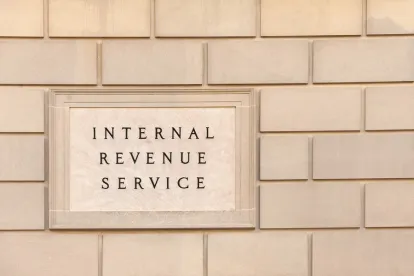In Kearse v. Commissioner, T.C. Memo 2019-53, the Tax Court held the Internal Revenue Service (IRS) abused its discretion as part of the taxpayer’s Collection Due Process hearing (CDP hearing) because the Appeals officer failed to properly verify that the assessment of the taxpayer’s unpaid 2010 liability was preceded by a duly mailed notice of deficiency.
The taxpayer, well-known to sports fans, was Jevon Kearse. Mr. Kearse, nicknamed “The Freak” for his athletic ability, played for 11 seasons in the National Football League and tallied 74 career sacks as a dominating defensive end. Based on the description of events by the Tax Court, Mr. Kearse’s attorneys outmaneuvered the IRS similar to the way Mr. Kearse had offensive tackles tripping over their shoestrings.
Mr. Kearse’s tax case stemmed from the IRS’s disallowance of a bad debt deduction he claimed for the 2010 tax year (which he later claimed was a deductible theft loss). According to the IRS, Mr. Kearse purportedly received a notice of deficiency dated May 11, 2012 (2012 NOD), which was sent to his last known address. Mr. Kearse disputed proper mailing and receipt of the 2012 NOD. Later in 2012, the IRS assessed against Mr. Kearse the unpaid balance of his 2010 tax liability and filed a Notice of Federal Tax Lien (NFTL) against his property. Upon receipt of the NFTL, Mr. Kearse promptly requested a CDP hearing and asserted the lack of proper mailing and receipt of the 2012 NOD.
Internal Revenue Code (Code) Sections 6320 and 6330 require that a CDP hearing be conducted by IRS Appeals. Those rules also require that the assigned Appeals officer obtain verification that the requirements of applicable law and administrative procedure have been satisfied. This requires verification that a notice of deficiency was duly mailed to the taxpayer before the IRS made an assessment of tax against the taxpayer.
IRS procedures generally permit an Appeals officer to rely on the IRS’s “Integrated Data Retrieval System” to verify that a notice of deficiency was properly mailed to a taxpayer. However, when a taxpayer asserts that a notice of deficiency was not properly mailed, the IRS’s procedures require the Appeals officer to review: (1) a copy of the notice of deficiency; and (2) the United States Postal Service (USPS) Form 3877 or equivalent IRS certified mail list bearing a USPS date stamp or the initials of a postal employee. Significantly, the Appeals officer acknowledged she failed to secure or review either of these documents before sustaining the NFTL filed against Mr. Kearse.
Mr. Kearse appealed the determination of the Appeals officer to the Tax Court. The Tax Court’s opinion effectively tackled two issues: (1) how the IRS must demonstrate proof of a properly mailed notice of deficiency; and (2) whether a party will be allowed to disregard a stipulated fact.
With respect to the first issue, the Tax Court noted the striking similarities to Hoyle v. Commissioner, 131 T.C. 197 (2008), in which the IRS also could not produce a USPS Form 3877 to prove that a notice of deficiency had been properly mailed to the taxpayer. With the help of Hoyle, the Tax Court held—on an abuse of discretion standard of review—that the IRS failed to demonstrate proof of mailing the 2012 NOD to Mr. Kearse.
With respect to the second issue, Mr. Kearse’s tax attorneys were able to get IRS counsel to stipulate to the fact that the IRS could not produce a USPS Form 3877 to show proof of mailing the 2012 NOD or otherwise establish that it was delivered to Mr. Kearse. Following trial, the Tax Court put some additional time on the clock and ordered IRS counsel to file a response addressing whether the Appeals officer properly verified that the 2012 NOD was mailed to Mr. Kearse. As part of the post-trial response, the IRS produced a USPS Form 3877 intended to prove the proper mailing of the 2012 NOD.
The Tax Court flagged the IRS and refused to accept the delinquently proffered USPS Form 3877 as evidence that the IRS properly mailed the 2012 NOD to Mr. Kearse. The Tax Court based this decision on the fact that IRS counsel stipulated that it could not produce any such USPS Form 3877. According to the Tax Court, a stipulated fact is treated as a “conclusive admission” and cannot be changed or contradicted except in extraordinary circumstances. The Tax Court hinted that it may have been more lenient and relieved the IRS of the stipulated fact had IRS counsel actually requested relief, but no such relief was requested. Thus, the Tax Court ruled that the IRS was bound to the stipulation, which ultimately resulted in a favorable outcome for Mr. Kearse.
Practice Point: Kearse has two key takeaways: (1) the IRS must follow its own procedures to prove proper mailing of a notice of deficiency as part of a Collection Due Process case (which may include having tangible evidence of delivery); and (2) the Tax Court generally will not let the IRS out of a stipulated fact—even where the IRS eventually produces tangible evidence to the contrary of such stipulation.




 />i
/>i
